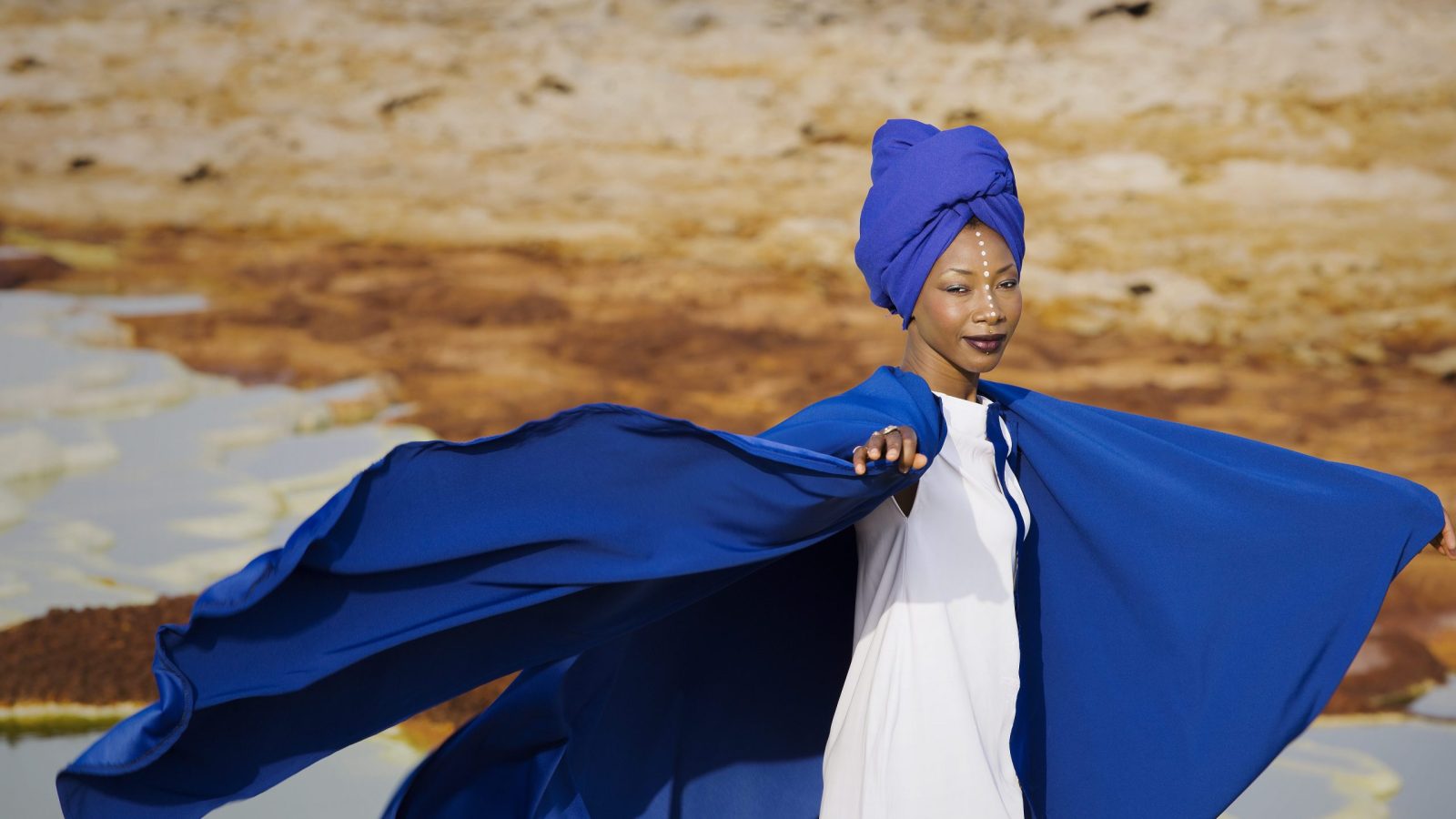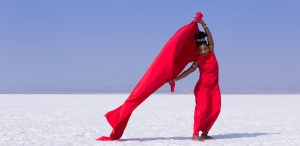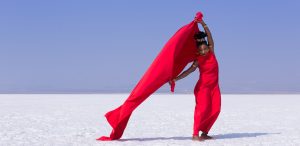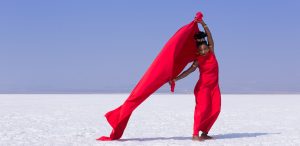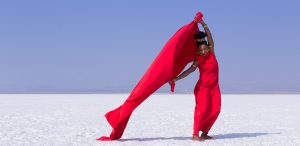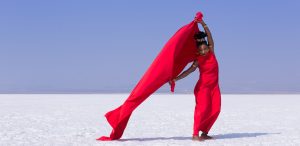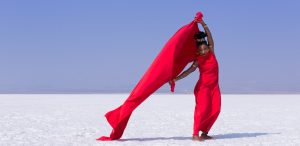Fatoumata Diawara is a force to be reckoned with. A conscientious artist, set on making a positive impact through her art — she writes, plays and sings with a purpose and authenticity that shines brightly in her recordings and live performances alike. Following a sold out show at Band on the Wall in 2018, we’re excited to welcome her back to the UK for an extensive tour beginning next month. Ahead of those eagerly-anticipated dates, we caught up with Fatoumata in her native Bamako, Mali, to discuss the messages her music communicates, and the artists who inspire her to forge ahead.
“I am so happy to be back home,” Fatoumata exclaims, a wash of ambient street sound flooding down the line each time she pauses for thought. “I’m happy just to be with my mum and father, my sister and brother — with my family.” One of the toughest aspects of Diawara’s profession is the time it requires her to spend away from her family, so the joy she feels in returning to Mali, spending time with those loved ones and recharging her energy, is evident in her voice.
Those aren’t the only reasons for return, however: Fatoumata played an open-air festival shortly after the new year and is busy recording new material for a forthcoming project. These positive things aside, she isn’t afraid to address the difficult issues that motivate her to write and perform, such as the oppression and war that affect mothers and children throughout the world — the very same people she dedicated her recent Songlines award to. “It’s quite weird, today, the world is going really crazy every day,” she states. “Every single day is a new day, so I’m just praying every day how we can make this planet better for our children.”
Addressing the question of how motherhood has impacted the ideas she stands for, she continues, “As a mum, I’ve got a baby of four months, when I look at him every morning I’m like, oh my god, why did I do this?” she laughs. “Why, now, why! Nature is burning every day…that pushes me every day to record, to sing, because I’m trying to use my voice to fight and get off war, because it’s not necessary nowadays. I think we’re better to put our energy into something positive! To save our planet.”
Aside from her desire to advocate for peace, freedom, and climate action, Fatoumata is motivated to a great extent by the many inspiring artists she has met and worked with in recent years. Bringing up the names of Amadou and Mariam, Damon Albarn and others, she responds, “What I really love about those great artists is that they respect my music. Not because I sing better than anyone, it’s not about the singing, it’s a kind of feeling. We’ve got a feeling between us, and working with them, they always tell me something which pushes me to work harder, to go further. They help me to grow up. I’m a friend of all of them, meeting them through my music, through my creation, through my songs, is something huge to me.”
She suggests that, at times, simply thinking about them can motivate her to work hard. “I want them to be proud of me,” she affirms, “it’s kind of a godfather and godmother to me.” Singling out Gorillaz leader and Africa Express co-founder Damon Albarn, Fatou adds, “He wants me to be a guitar player, he told me: ‘go, go, go, sister, go, go, go!’ You know, he’s pushing me every day. We are closer, and he told me, ‘I can see that you are working, and keep working.’”
Amongst the aforementioned role models is Angelique Kidjo, an artist whom Fatoumata reveres as greatly as Fela Kuti and Nina Simone. “I like her energy,” she states, going on to explain how, when she is brought down by a grueling schedule or time away from her family, it’s the enthusiasm of artists like Kidjo that bring her back into a positive frame of mind. “She’s the foremost African female artist touring and doing many projects at the same time, she’s crazy. When I watch her, I say, ‘OK, if she is doing it, I can keep fighting.’”
“We need the next female artists,” Fatoumata expounds, “she’s [Angelique] been doing a lot and it’s important for our new generation to keep fighting as she’s doing.”
While Diawara has the great ability to sing in a number of languages, she feels that it is the honesty of an artist that communicates an audience, as much as the language they use. “Naturally it’s in Bambara” she states, referring to the language in which she most comfortable composes, “but to me, it’s more the purity: the first thing that I’m fighting for is how I can be the most pure to my audience. I don’t want to lie. When you come to my show, most of the time, the compliment that people tell me is: the truth, they would tell me about the truth, they would say, you’re so yourself….When people tell me this I said, OK, the mission is done!”
“It’s not the technique of the vocal, it’s more the purity, the sincerity, how I can be the most sincere to my audience. This is through my traditional language, my native language, which is the Bambara. So naturally, when I compose, the song: the first melody and inspirations come through by the Bambara. But, sometimes, I have so many recommendations to sing in French, as I’ve been doing with the Lamomali project, and also with Damon Albarn and Bobby Womack — I have one song with Bobby Womack and I was learning how to sing in English, Damon coached me to sing in English. I keep trying to improve that. Sometimes, I can experiment to sing in English. Like in my show, I have one cover which is a Nina Simone song, Sinnerman, I rearranged it to be with African rhythms, but at the same time, I sing in English to let my audience know that it’s a choice.”
Fatoumata concludes, “I want to share my truth, I want to be myself when I’m with them, because I believe that we are all the same. I believe that they don’t need my language to understand my truth. It’s like, when you look at a baby, no matter which region it has come from, which country it has come from, you can feel a baby, right? You don’t care about the colour of the baby, you don’t care about the nationality, it’s the world of the baby, and the music’s supposed to be like this, music is like that…it doesn’t matter which language you are singing in, what is most important is the unity, the feeling, and I like people to see me as a baby, as the soul of a baby on stage and say, OK, I know her I feel her just as she is.”


